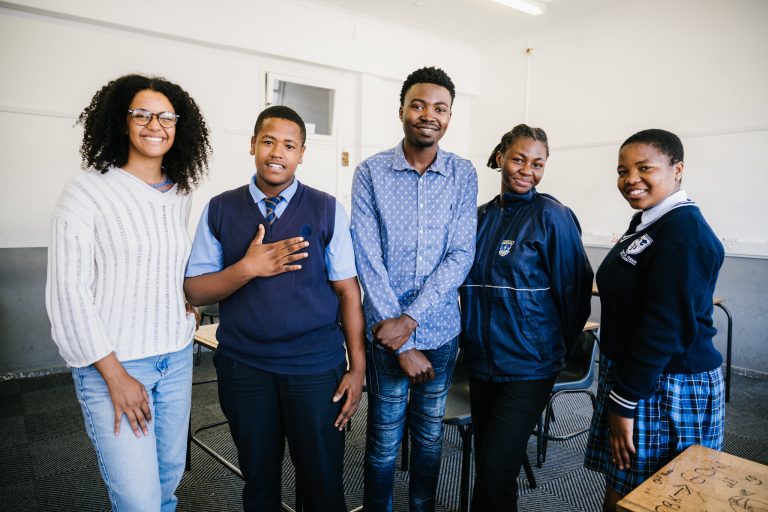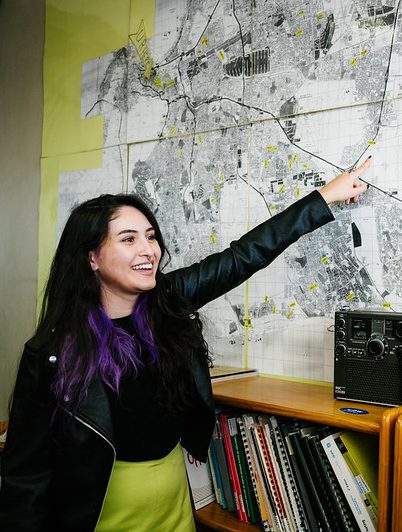RESOURCES
2024-03-13
What Is Post-Secondary Education?
In this post, we outline the most common post-secondary education options available after high school.
But first things first: What exactly is post-secondary education?
Written by Tilting Futures

What Is Post-Secondary Education?
Your education is a journey to prepare you for the life you want to lead, and there are many possible paths to explore after graduating high school. Post secondary education opportunities can allow you to dive deeper into your interests and discover your true passions. Many post secondary education programs offer more hands on learning experiences that provide clarity about what you want to do with your life.
Post Secondary Education: Meaning and Definition

As one might expect, post-secondary education comes after secondary education (also known as high school, which is the final phase of basic education). Post-secondary education is also known as third-level education, higher education, or tertiary education, and is an optional educational path for those who have completed their high-school or GED requirements. The goal of a post-secondary education program is to further train students in specialized skills, preparing them for more advanced career and life opportunities.
Post-secondary education programs generally (but not always) culminate in a degree or other form of certification, verifying that the student has completed all associated requirements and is ready to graduate from the program. Post-high school education options that do not award degrees are usually called continuing education and may include workshops, seminars, and other supplemental opportunities. That said, both of the terms “continuing education” and “post-secondary education” may also be used to describe any form of education available after secondary education.
Types of Post Secondary Options
While for many, “post-secondary education” is synonymous with college, the truth is that high school graduates have a number of different options to choose from for structured learning after high school. Consider these different types of post-secondary education programs:
Vocational Schools
Vocational schools (also called trade schools or technical schools) offer specialized education designed to prepare students for specific lines of work. Compared to a college education, which is usually more academic-focused, vocational programs tend to be more hands-on, experience-oriented, and tailored toward practical career knowledge. Additionally, by eliminating many of the general education and liberal arts requirements found in colleges, vocational schools may offer a more direct route into the job market. This is the result of job-specific training opportunities and shorter completion times.
Vocational schools typically funnel students directly into careers in skilled trades. Examples of vocational courses include: healthcare and home caregiving, plumbing, electrical services, hairstyling, carpentry, computer network management, paralegal studies, massage therapy, and more.
Community Colleges
Community colleges are shorter-duration alternatives to the traditional four-year university experience. Most community colleges allow students to earn an associate degree over the course of two years, focusing primarily on the general education classes required by accredited universities. They sometimes also offer non-degree certification and vocational training.
Most community colleges are open admission, meaning that the admission process is non-exclusive, and not dependent on any academic factors other than a high school diploma or equivalent certification. After earning their associate degree through the community college, students may either enter the job market with increased training and certification, or choose to transfer to a four-year college or university to pursue a specific major and earn a bachelor’s degree.
Colleges and Universities
Colleges and universities are generally what first come to mind when people think of post-secondary education. These higher-education institutes offer bachelor degree (four-year) programs. Additionally, students may choose to continue their education past the BA/BS level; colleges and universities tend to offer post-graduate programs, allowing dedicated individuals to earn master’s degrees or doctorates.
Completing a four-year college program may make some graduates more appealing to job interviewers, and there are a number of companies that won’t even consider applicants unless they have at least a bachelor degree. On the other hand, colleges and universities are usually the most-expensive post-secondary education options — averaging approximately $28,000 in tuition annually. However, many different scholarship and grant programs exist to help offset some of these costs; prospective students should research these possibilities while considering post-secondary options.
Gap Year and Immersive Learning Programs

Many post-secondary students want to take the time to travel, see the world, and enjoy the freedom that comes from having completed their high school education. At the same time, many feel the desire to use this time to better themselves, learn valuable leadership skills, and give something back. For these students, immersive learning programs abroad may be the answer they’re looking for.
Gap years and travel abroad programs offer experiential learning, hands-on training, and real-life opportunities to help and connect with individuals around the world. Students often pursue these opportunities during a ‘gap year’ (either after high school and before college, or between college years). Many gap year programs combine education and service, and are designed to produce well-rounded, socially conscious individuals who are ready to excel in whatever careers or life paths they choose.

Considering a gap experience?
See how Take Action Lab could align with your goals for post secondary education.
Get the Most out of Your Post-Secondary Opportunities
If you’re interested in pursuing a post-secondary education, you have a lot of different options to consider.
But if you want something that expands your worldview, strengthens your leadership skills, and allows you to interact with new people and cultures, then why not apply for an immersive learning program like Take Action Lab?
Make global connections, get hands-on learning opportunities, and gain the experience needed to change the world for the better.


